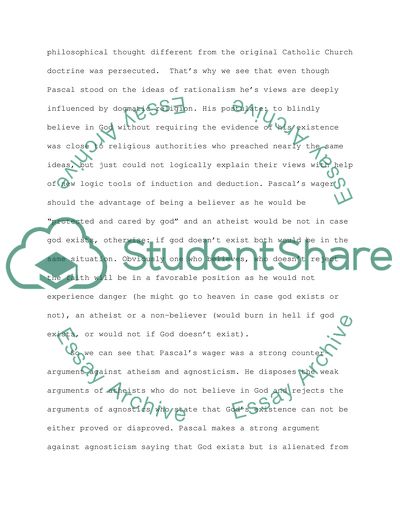Cite this document
(Blaise Pascal's Religious Theories Essay Example | Topics and Well Written Essays - 2000 words, n.d.)
Blaise Pascal's Religious Theories Essay Example | Topics and Well Written Essays - 2000 words. Retrieved from https://studentshare.org/philosophy/1702801-pascals-wager
Blaise Pascal's Religious Theories Essay Example | Topics and Well Written Essays - 2000 words. Retrieved from https://studentshare.org/philosophy/1702801-pascals-wager
(Blaise Pascal'S Religious Theories Essay Example | Topics and Well Written Essays - 2000 Words)
Blaise Pascal'S Religious Theories Essay Example | Topics and Well Written Essays - 2000 Words. https://studentshare.org/philosophy/1702801-pascals-wager.
Blaise Pascal'S Religious Theories Essay Example | Topics and Well Written Essays - 2000 Words. https://studentshare.org/philosophy/1702801-pascals-wager.
“Blaise Pascal'S Religious Theories Essay Example | Topics and Well Written Essays - 2000 Words”, n.d. https://studentshare.org/philosophy/1702801-pascals-wager.


